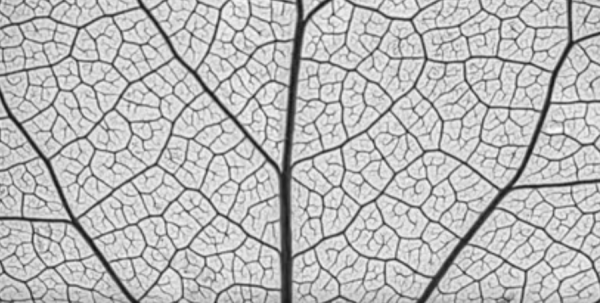By Vishal Goel, | April 08, 2017

The synthetic material showed enhanced performance in gas sensing, photocatalysis, and lithium ion batteries. (YouTube)
In a first, an international team of researchers has created a porous material which mimics leaf vein structures and could make energy transfers more efficient.
The synthetic material showed enhanced performance in gas sensing, photocatalysis, and lithium ion batteries. The material can also improve battery performance by optimizing the charge and discharge processes which currently limit their lifespan. The same material could also be used for high-performance gas sensing or for catalysis to break down organic pollutants in water.
Like Us on Facebook
The team, which comprises of scientists from the United Kingdom, China, Belgium, and the United States, is applying the popular rule known as "Murray's Law" which explains survival and growth of natural organisms. According to this law, the entire network of pores in these biological systems is interconnected in a way such that it facilitates the transfer of liquids while minimizing resistance throughout the network. The leaf veins or plant stems of a tree help in optimizing the flow of nutrients for photosynthesis with high efficiency and minimum energy consumption by regularly branching out into smaller scales. Similarly, the surface area of the tracheal pores of insects remains constant along the diffusion pathway to maximize the delivery of carbon dioxide and oxygen in gaseous form.
Led by Prof Bao-Lian Su, based at Wuhan University of Technology in China and at the University of Namur in Belgium, the team of researchers adapted Murray's Law for the fabrication of the first ever synthetic "Murray material" and applied it to three processes: gas sensing, photocatalysis, and lithium ion battery electrodes. In each, the scientists found that the multi-scale porous networks of their synthetic material significantly enhanced the performance of these processes.
The study, according to Prof Su, shows that by adapting Murray's Law to chemistry, the performance of materials can be improved drastically. Further, the adaptation could also benefit a wide range of porous materials and improve nano-metals and functional ceramics used for energy and environmental applications.
-
Use of Coronavirus Pandemic Drones Raises Privacy Concerns: Drones Spread Fear, Local Officials Say

-
Coronavirus Hampers The Delivery Of Lockheed Martin F-35 Stealth Fighters For 2020

-
Instagram Speeds Up Plans to Add Account Memorialization Feature Due to COVID-19 Deaths

-
NASA: Perseverance Plans to Bring 'Mars Rock' to Earth in 2031

-
600 Dead And 3,000 In The Hospital as Iranians Believed Drinking High-Concentrations of Alcohol Can Cure The Coronavirus

-
600 Dead And 3,000 In The Hospital as Iranians Believed Drinking High-Concentrations of Alcohol Can Cure The Coronavirus

-
COVID-19: Doctors, Nurses Use Virtual Reality to Learn New Skills in Treating Coronavirus Patients











